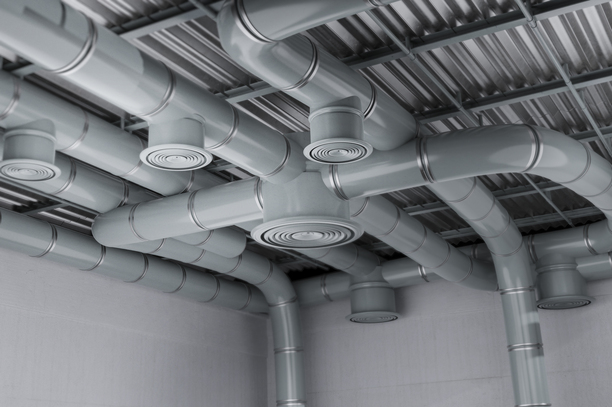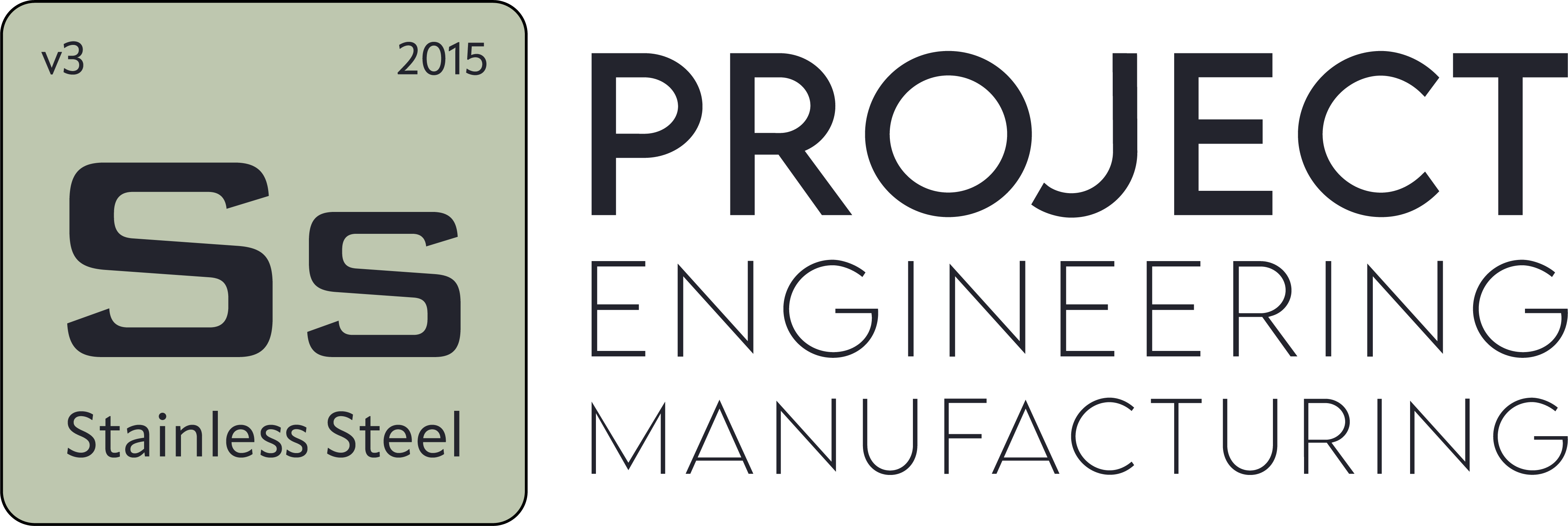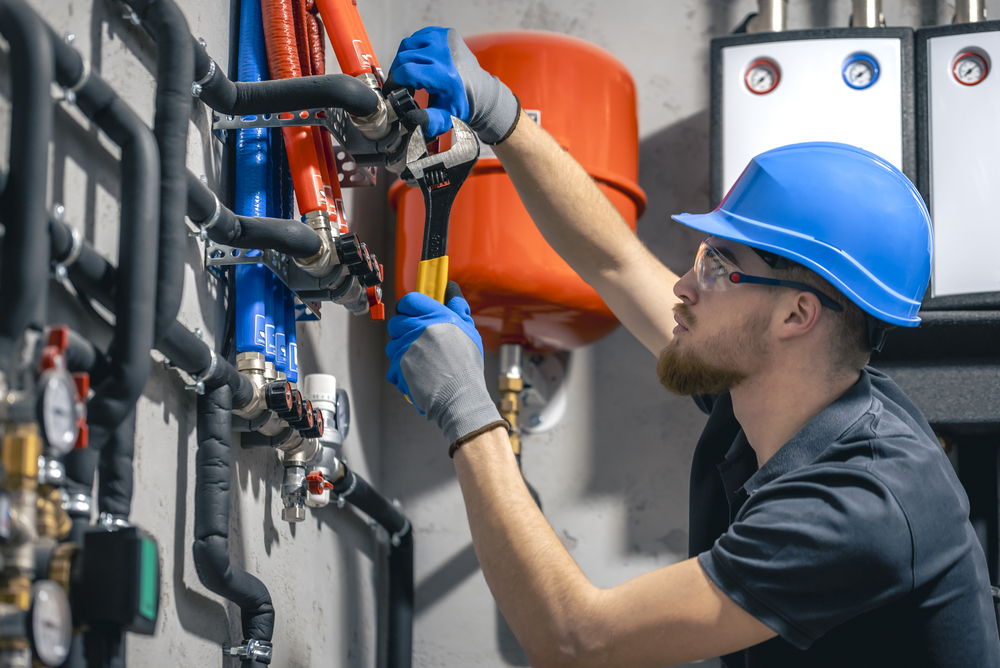Hygienic Installation Solutions
- Blog
- Hygienic Installation Solutions
Hygienic Installation Solutions
What is Hygienic Piping and Why is it Important?
Hygienic piping is a specialized mechanical piping system that ensures the cleanliness and quality of water from its source to the end user. It is particularly preferred in hospitals, laboratories, pharmaceutical, and food production facilities, where materials like stainless steel that do not harbor bacteria are used. This protects user health and ensures full compliance with legal hygiene standards.
The most important feature of hygienic piping systems is their ability to minimize the risk of infectious diseases, providing safe usage. Additionally, the system's easy-to-clean nature makes maintenance processes highly practical. Proper design and implementation of these systems are crucial in areas where hygiene is critical.
We offer tailored solutions for the needs of the hygienic piping industry. From design to installation, we apply our engineering expertise and experience to create long-lasting and reliable systems.
Which Materials Are Preferred in Hygienic Piping?
Materials used in hygienic piping systems must not compromise water quality, must be bacteria-resistant, and must be easy to clean. Therefore, every material chosen must meet both health standards and long-term usability criteria.
Stainless steel (especially AISI 304 and AISI 316L grades) is the most commonly used material in hygienic piping systems. Its corrosion-resistant structure, smooth inner surface, and ease of sterilization make it ideal for use in hospitals, laboratories, pharmaceutical, and food production facilities. This material preserves water quality by not altering its physical or chemical properties.
Special gaskets, clamps, hygienic valves, flow control equipment, and leak-proof fittings are also integral components of the system. All these components must comply with international hygiene standards and be integrated to ensure system integrity.
Why is Hygienic Piping Important in the Food and Pharmaceutical Industries?
The food and pharmaceutical industries require the highest hygiene standards in their production processes. The hygienic transfer of water and other liquids is vital for product safety and public health. Hygienic piping systems ensure cleanliness at every stage of the production line.
Thanks to stainless steel pipes, hygienic valves, and special connection systems, liquids are transported without contamination. This minimizes the risk of microorganisms, bacteria, or chemical residues. Additionally, the easy-to-clean design of these systems saves time during cleaning and maintenance, supporting production continuity.
We meet high safety standards with hygienic piping solutions tailored for the food and pharmaceutical industries. By establishing systems compliant with national and international regulations, we aim to create a seamless and sustainable hygiene infrastructure in production areas.
What Are the Most Common Problems in Hygienic Piping Systems?
Since hygienic piping systems serve sensitive applications, even minor issues can lead to serious consequences. Therefore, the design and implementation of the system, as well as identifying and preventing potential problems, are of great importance.
One of the most common issues is inadequate material selection. Using unsuitable alloys instead of stainless steel can cause corrosion over time, compromising water quality. Improper pipe slopes or faulty installation can lead to liquid accumulation and bacterial growth. Additionally, leaks at connection points can cause both hygiene risks and energy losses.
Neglecting cleaning and maintenance can lead to biofilm formation and long-term performance degradation. Furthermore, inadequate design and non-compliant applications shorten the system's lifespan and burden users with additional costs.
What Should Be Considered When Installing Hygienic Piping?
The installation of hygienic piping systems is not only a technical process but also critical for health. In areas like food, pharmaceuticals, healthcare, and laboratories where hygiene is paramount, proper installation directly impacts product quality and user safety.
The choice of materials is of primary importance during installation. Stainless steel (preferably AISI 316L) must have a smooth inner surface and be corrosion-resistant. During the design phase, the system's flow direction, pipe slopes, and connection points must be accurately determined to ensure liquids flow without pooling and cleaning processes are seamless.
Leak-proof fittings and hygienic gaskets should be used, and welding must be performed by expert teams. Precision in measurements and installation is critical for both safe operation and maintenance ease. Post-installation leak tests and cleaning procedures must be thoroughly completed.

How is Hygienic Piping Maintained and Cleaned?
Regular maintenance and cleaning are essential for the healthy and uninterrupted operation of hygienic piping systems. In sensitive sectors like food, pharmaceuticals, and healthcare, even minor contamination or residue can reduce production quality and create serious hygiene risks. Therefore, cleaning processes must be conducted periodically and professionally.
The most common cleaning method is the CIP (Clean-In-Place) system. This method allows the system to be cleaned without disassembly by passing cleaning solutions through the pipes, effectively cleaning surfaces. The chemicals used must be non-damaging to stainless steel and residue-free.
During maintenance, components like valves, connection points, gaskets, and filters should be regularly inspected, and worn or leaking equipment should be replaced promptly. Additionally, leak and flow tests must not be neglected.
SS Proje provides technical support for the maintenance and cleaning of the hygienic piping systems it installs, ensuring long-term operation. Our professional approach ensures your systems remain safe and hygienic at all times.
What New Technologies Are Used in Hygienic Piping Solutions?
Hygienic piping systems are becoming more secure, efficient, and sustainable with technological advancements. The increasing quality expectations in the food, pharmaceutical, and healthcare sectors necessitate continuous innovation in these systems.
Today, automatic cleaning systems (CIP - Clean-In-Place) eliminate the need for manual cleaning, saving time and minimizing human error. These systems, supported by special sensors, can automatically detect when cleaning is complete. Additionally, smart sensors monitor parameters like temperature, pressure, and flow in real-time, keeping system performance under constant control.
The use of orbital welding technology in stainless steel piping systems ensures smooth inner surfaces, reducing bacterial growth risks. Advanced sealing technologies in hygienic fittings enable the installation of longer-lasting and safer systems.
As SS Proje, we closely follow the latest technologies in hygienic piping applications and effectively incorporate these innovations into our projects. Our goal is to provide solutions that meet not only today's needs but also future requirements.


